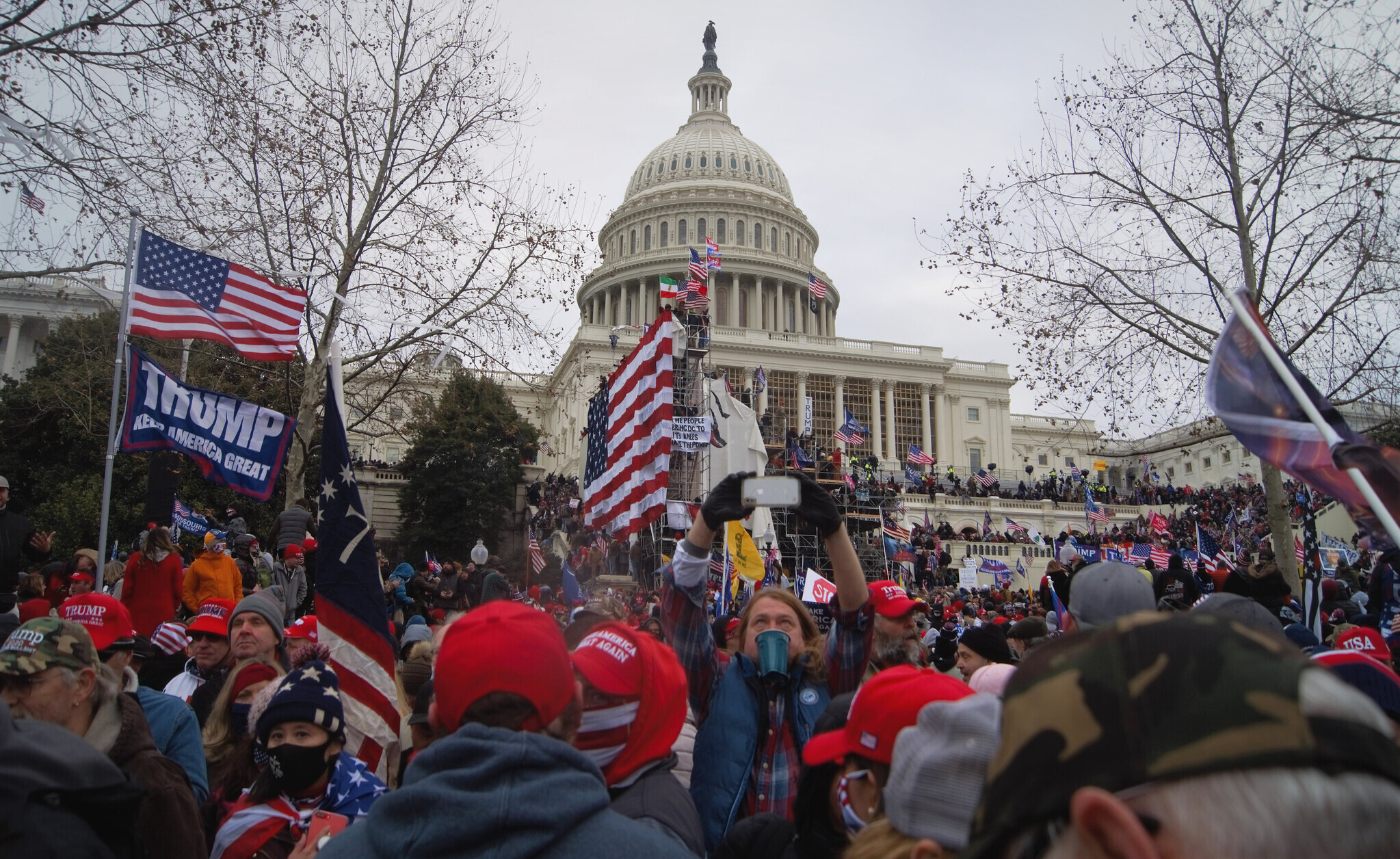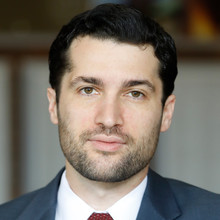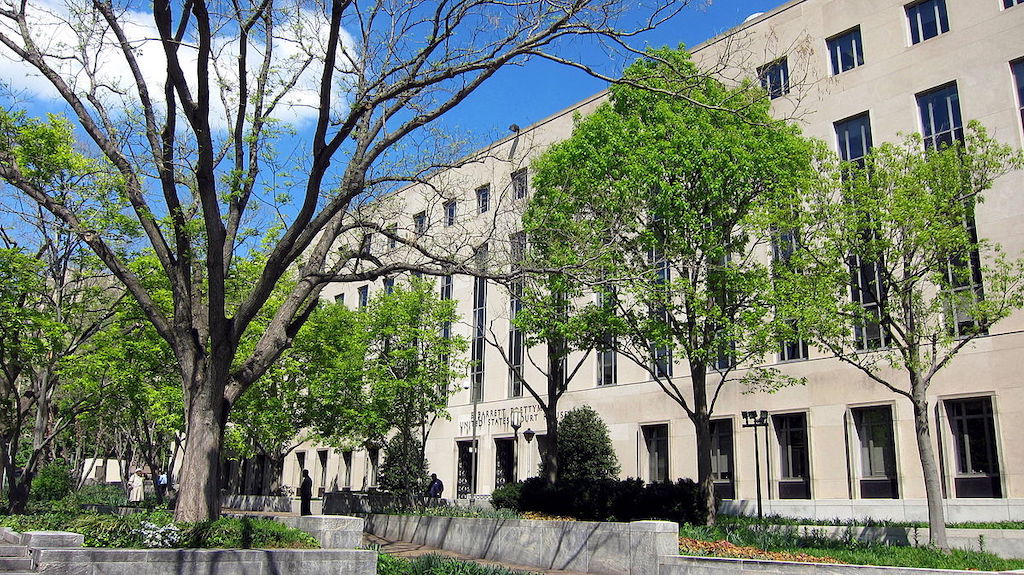After Oral Argument, the Future of Thompson v. Trump Remains Unclear
Despite hours of oral argument, the district court did not signal whether attempts to hold former President Trump and others civilly liable for encouraging the Jan. 6 attack on the Capitol will succeed.

Published by The Lawfare Institute
in Cooperation With

Hours into a marathon oral argument on Jan. 10, Judge Amit Mehta of the U.S. District Court for the District of Columbia observed that “if there is one thing this hearing has shown it's that this is not an easy case.” For nearly five hours Judge Mehta heard arguments about whether former President Donald Trump, Rep. Mo Brooks, Rudy Giuliani and others could be held civilly liable for their role in the Jan. 6 Capitol insurrection. The main lawsuits, brought by Reps. Bennie Thompson and Eric Swalwell, allege violations of 42 U.S.C. § 1985(1), a Reconstruction-era statute that created civil liability for conspiracies to prevent public officials from “holding any office” or “discharging any duties.”
Addressing issues common to the three lawsuits, Judge Mehta wrestled with formidable defenses raised by Trump and his co-defendants: chiefly that Trump and Books are immune from civil liability for actions taken as part of their official duties, and that the defendants’ statements leading up to the siege of the Capitol could not satisfy the elements of conspiracy, especially to the extent that the statements were protected speech under the First Amendment.
Immunity
Trump lawyer Jesse Binnall argued for an expansive, highly formalistic vision of presidential immunity, relying on the Supreme Court’s ruling in Nixon v. Fitzgerald that presidents are entitled to absolute immunity from civil liability for actions while in office that fall within the “outer perimeter” of their official responsibility. The crux of Binnall’s argument was that the court must entirely ignore the content of Trump’s speech on Jan. 6—his remarks at the Ellipse and on Twitter over the course of the day—and look only at the president’s conduct to analyze whether he was acting in his official capacity. Because Trump was addressing the American people, Binnall argued, he was acting within his official duties as president and must enjoy immunity, especially since the subject of his speech, electoral integrity, is a matter of immense public concern.
Judge Mehta was skeptical of this all-encompassing vision of the president’s official duties, which potentially would make the president immune from civil liability anytime he opens his mouth. Judge Mehta pushed Binnall on whether there is anything that a president could do or say while in office—for example, as part of a campaign—that would not be immune from liability under his expansive theory of presidential immunity. Binnall said that he could not name an example of anything the president could say that would not fall within his official duties under this theory, but that perhaps signing a lease on a campaign office would not fall within his responsibilities as president.
But if Binnall failed to give Judge Mehta a reasonable standard for the scope of presidential immunity, the plaintiffs struggled to offer one that would withhold immunity in this case while nevertheless being consistent with precedent. The plaintiffs argued that Trump should not enjoy immunity because fomenting an insurrection against Congress was clearly unconstitutional and thus outside his official duties. But as Judge Mehta noted, Fitzgerald held that presidential immunity did not depend on the legality of the president’s action. The plaintiffs were left to argue that Trump’s conduct surrounding Jan. 6 was so outrageous that it was clearly beyond the scope of his presidential responsibilities. But where exactly to draw that line remained unclear.
The question of the scope of official duties was also at the center of Brooks’ claim that he should be immune from liability under the Westfall Act, which requires the government to act as the defendant when federal employees are sued for tort liability for official actions. The Department of Justice joined the plaintiffs in arguing that Brooks—who spoke before Trump on Jan. 6 and declared that “Today’s the day American patriots start taking down names and kicking ass”—was campaigning and therefore acting outside the scope of his official duties; as a result, Brooks should not be immune from civil liability. But Brooks, who argued on his own behalf, emphasized that his motivation in speaking at the Jan. 6 rally was not simply to support Republican candidates in future elections, but also to convince his fellow congresspeople to vote against the certification of the electoral college votes.
First Amendment
The other major hurdle for the plaintiffs is the First Amendment, which generally protects the sort of political speech that Trump, Brooks and the other rally speakers engaged in (and to that extent cannot serve as the predicate for the plaintiff’s conspiracy charges). The plaintiffs emphasized that the defendants could be held liable under even the highly speech-protective standard of Brandenburg v. Ohio, which permits liability for “advocacy of the use of force or of law … except where such advocacy is directed to inciting or producing imminent lawless action and is likely to incite or produce such action.”
In a heated exchange, Binnall, Trump’s lawyer, repeatedly pointed to several inflammatory statements that the Democratic plaintiffs had themselves previously made, arguing that if Trump’s language was found to be incitement to violence here, but similar language used by others elsewhere was not, the court would be failing to apply the First Amendment equally to Democrats and Republicans. Judge Mehta sharply rebuked Binnall for engaging in “whataboutism” and for suggesting that he was judging Trump and his co-defendants’ speech more harshly because of their party.
Like the discussion of presidential immunity, the First Amendment portion of the argument was inconclusive. On the one hand, Trump’s words did not explicitly call for violence and were on their face far less inflammatory than what the Supreme Court upheld in Brandenburg and in many cases since. On the other hand, the broader context of Trump’s speech, from his months-long campaign to discredit the election to his failure to act after the attack on the Capitol began, suggests, as Mehta noted, that Trump’s speech went beyond ordinary political rhetoric, even if it was not the sort of speech that typically qualifies as conspiracy to commit violence.
Ultimately, and despite hours of questioning, Judge Mehta did not tip his hand as to how he will rule on the many complex legal issues that the lawsuits raise. But given the high political and legal stakes, it’s unlikely that Judge Mehta’s decision will be the last word. The parties will almost certainly appeal any outcome to the U.S. Court of Appeals for the D.C. Circuit, and this case may well end up before the Supreme Court, especially on the central issue of presidential immunity.





